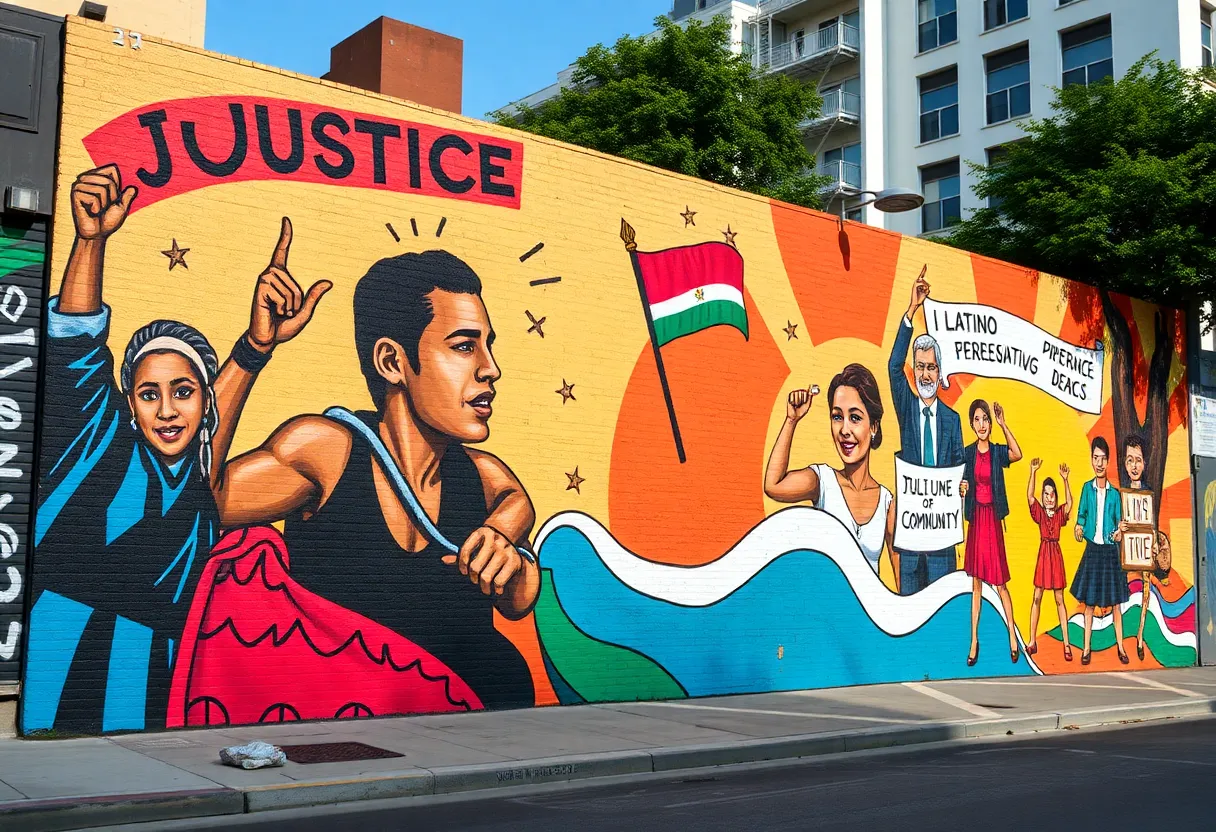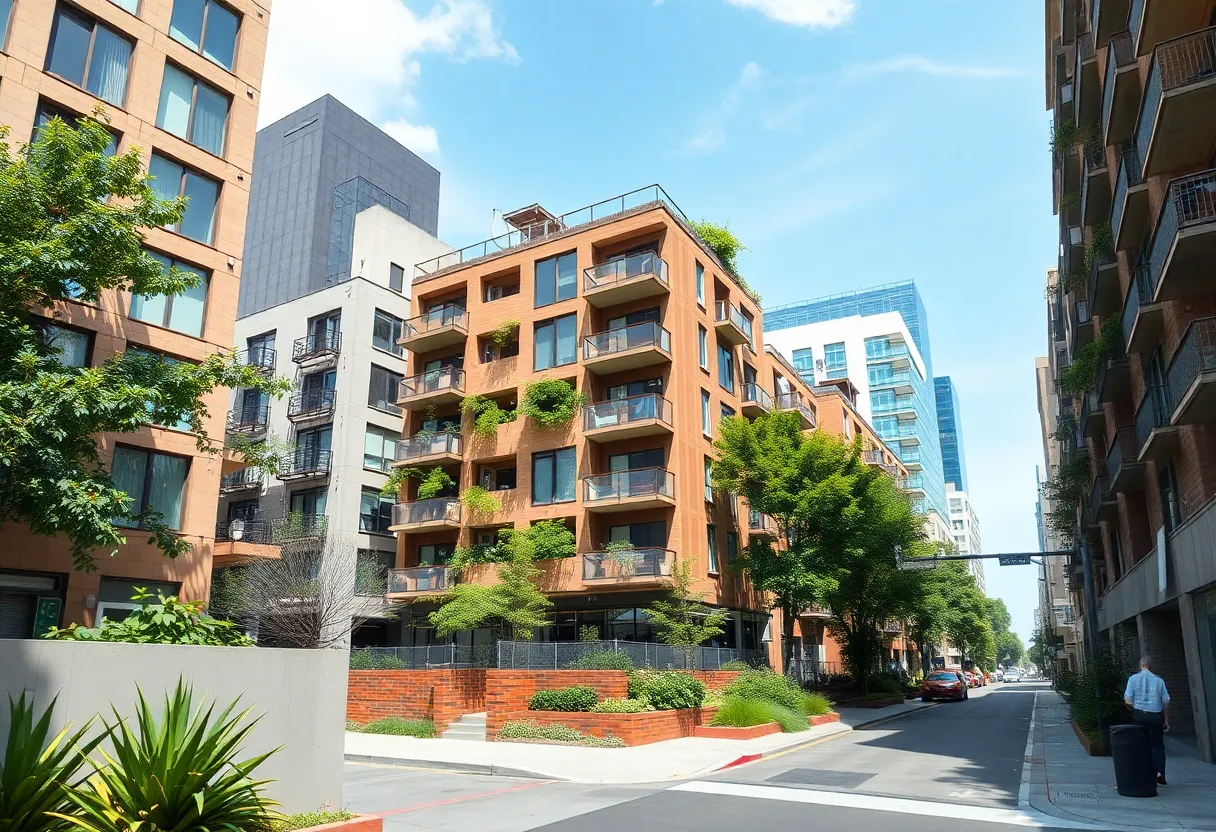News Summary
The 55th anniversary of the Chicano Moratorium is being commemorated, honoring the protest against the Vietnam War’s impact on the Latino community and the legacy of journalist Ruben Salazar. Events including a march and a theatrical play underscore ongoing issues surrounding civil rights and representation. Salazar’s contributions to journalism and advocacy remain significant as discussions about media safety and accountability rise today.
Los Angeles – The 55th anniversary of the Chicano Moratorium, a pivotal protest against the Vietnam War that highlighted the disproportionate number of Latino soldiers dying in combat, is being commemorated this September. This significant event also serves to honor the legacy of journalist Ruben Salazar, who was killed by a tear gas canister during the rally attended by nearly 30,000 people in East Los Angeles.
The Chicano Moratorium took place in 1970, becoming a watershed moment for the Latino community and furthering the fight for civil rights. The violence that erupted at the rally, instigated by the Los Angeles Police Department, resulted in the deaths of three individuals, including Salazar. His death not only marked a tragic loss for journalism but also raised questions regarding police conduct during protests, a concern that resonates with today’s media landscape.
Salazar was recognized for his impactful work as a columnist for a major publication, focusing significantly on the experiences and issues faced by the Chicano community. Over his career, he reported on immigration, served as a foreign correspondent, and provided in-depth coverage of local matters as a Metro reporter. His writings continue to inspire and educate, particularly around the ongoing struggles related to systemic issues facing Latino communities.
To commemorate Salazar’s legacy, numerous murals can be found across the Southwest depicting his contributions to journalism and the Chicano movement. In addition, educational institutions, such as a high school in Pico Rivera and Salazar Park in East Los Angeles, have been named in his honor, ensuring that his memory lives on in the community.
The U.S. Postal Service has also paid tribute to Salazar by issuing stamps featuring his likeness, while scholarships and awards—including the Ruben Salazar Awards—are presented to Latino journalists to recognize excellence in the field. This reflects the ongoing impact of Salazar’s work and the importance of supporting future generations of journalists.
Recently, Gustavo Arellano, who debuted his column five years ago from Salazar’s resting place, reflected on the challenges facing journalists today, which bear a striking resemblance to those faced by Salazar. The increasing threats to journalistic freedom and the safety of reporters are pressing issues. Recent protests have seen journalists injured, underscoring the urgent need to prioritize their protection.
In light of these concerns, the LA County Board of Supervisors unanimously passed a motion aimed at holding the Sheriff’s Department accountable for its training on ensuring journalists can cover protests safely. Supervisor Hilda Solis has highlighted Salazar’s death as a painful chapter in Los Angeles history, reinforcing his legacy as an essential voice for the Latino community and acknowledging that the fight for justice continues.
As the anniversary approaches, various events are taking place to celebrate the Chicano Moratorium, including a march organized by grassroots organizations and a theatrical play reflecting on issues related to Chicano identity. This combination of remembrance and activism serves to elucidate current systemic injustices still faced by Latino communities and the ongoing relevance of Salazar’s writings, which encourage critical examination of contemporary societal matters.
Arellano urges readers to revisit Salazar’s columns, emphasizing their lasting relevance to today’s societal issues. While Salazar’s tribulations are often overshadowed by his journalistic achievements, his unwavering commitment to truth-telling and striving for a just society resonate now more than ever. The 55th anniversary of the Chicano Moratorium stands as a testament to the enduring legacy of Ruben Salazar, a beacon for justice and representation in journalism.
Deeper Dive: News & Info About This Topic
HERE Resources
Additional Resources
- Los Angeles Times: Why Ruben Salazar Matters More Than Ever
- Wikipedia: Ruben Salazar
- LAist: Commemorate the 55th Chicano Moratorium
- Google Search: Chicano Moratorium 55th Anniversary
- Daily Kos: Ruben Salazar – Journalist for Justice
- Encyclopedia Britannica: Chicano Moratorium
- Daily News: 55th Birthday of LA Chicano Moratorium
- Google News: Ruben Salazar
- Boyle Heights Beat: Veterans Mural East Los Angeles

Author: STAFF HERE HOLLYWOOD
The Hollywood Staff Writer represents the experienced team at HEREHollywood.com, your go-to source for actionable local news and information in Hollywood, Los Angeles County, and beyond. Specializing in "news you can use," we cover essential topics like product reviews for personal and business needs, local business directories, politics, real estate trends, neighborhood insights, and state news affecting the area—with deep expertise drawn from years of dedicated reporting and strong community input, including local press releases and business updates. We deliver top reporting on high-value events such as the Hollywood Bowl summer concerts, the Hollywood Christmas Parade, film premieres at TCL Chinese Theatre, and festivals at the Magic Castle. Our coverage extends to key organizations like the Hollywood Chamber of Commerce and Visit Hollywood, plus leading businesses in entertainment, dining, and tourism that define the local economy. As part of the broader HERE network, including HERELosAngeles.com, HEREBeverlyHills.com, HEREAnaheim.com, and HEREHuntingtonBeach.com, we provide comprehensive, credible insights into Southern California's dynamic landscape.





